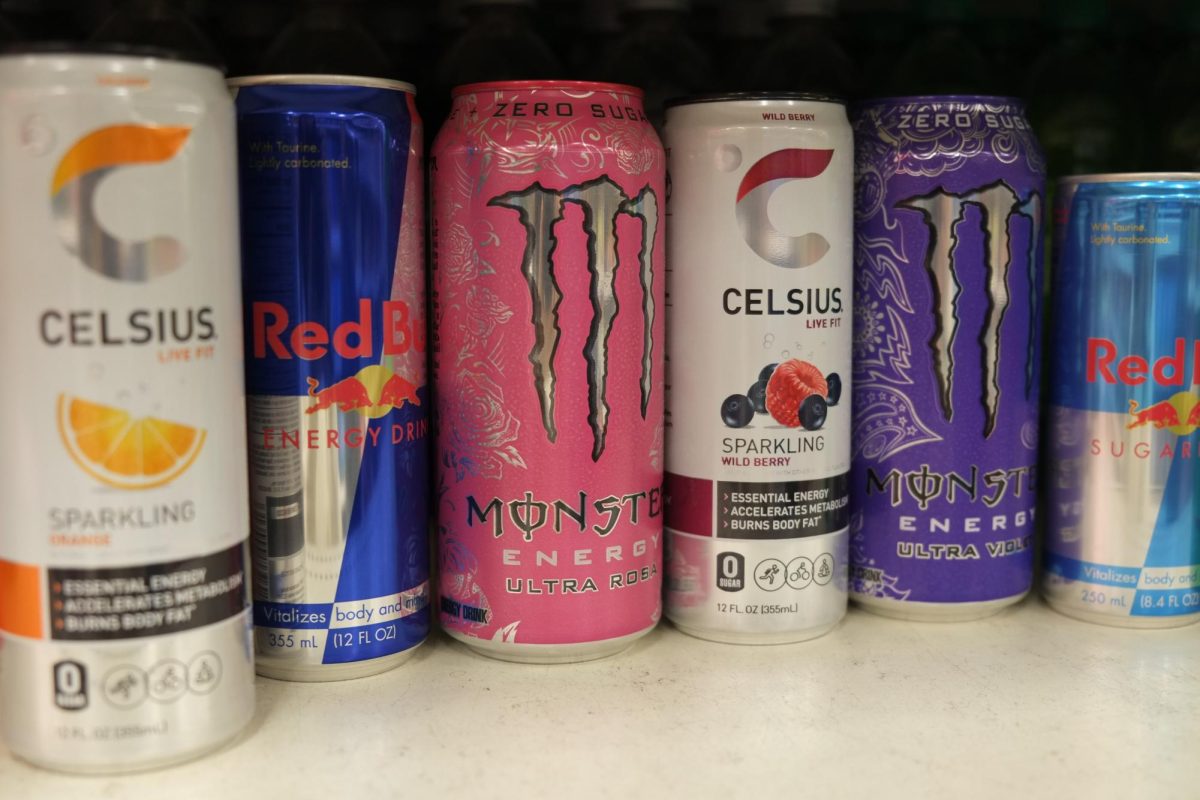Caffeine is a stimulant that increases circulation of chemicals in the body, activity in brains and the nervous system. In small doses, caffeine has the benefit of being able to make one feel more refreshed and focused. They come in “coffee, black and green tea, cocoa, cola soft drinks and energy drinks” according to Better Health Channel. While it does have advantages, some negative symptoms of being dependent on caffeine include fatigue, crankiness, continual headache, sweating, muscle pain and anxiety. Each caffeinated drink varies in the caffeine levels. For example, while an energy drink has approximately 160 mg per 250 ml, cola drinks have 20-29 mg per 375 ml.
For teens, it is recommended to limit consumption to “100 milligrams of caffeine a day- or less” according to Ut Health Houston.
There are various caffeinated drinks being consumed by Troy High School students such as Monster Energy, coffee, Redbull, Bang, matcha, Alani Nu energy drinks, Celcius and Panera’s Charged Lemonade.
Some side effects of caffeine are “insomnia, nervousness, restlessness, nausea, increased heart rate, and other side effects” according to WebMD. They also list taking care of migraines, improving breathing in premature infants, headaches after surgery, tension headaches and improving mental alertness as ailments caffeine is effective for.
Having one or more caffeinated drinks daily is pretty normal for students in Troy High School. While students are drinking the amount of caffeine they are cautioned against, they are aware of it.
“Every day, but I’m trying to get it to every other day,” junior Sydney Trumbull responded when asked how much caffeine she consumes.
Similarly, junior Aanika Nanda said, “Too much; depending on the day, one or two energy drinks.”
While there are different ways that negatively affect the students’ health, the main reason they drink caffeine is because of the positive effect of staying awake.
In fact, junior Naomi Player stated the reason she started drinking caffeine, “I was so tired, and they had it in the school store.”
History teacher Scott Gibbons expressed a similar situation for himself, “It started when I was in college. I had early morning classes. I don’t like coffee, so soda ended up being a way to get the caffeine without the yucky coffee taste.”
For his students, Gibbons believes drinking caffeine is all for the same reason. “School is early for the teenage brain.”
While he does understand why students consume so much caffeine, he doesn’t think it’s the best for them. “Teenage sleep cycles are messed up anyway and too much use of caffeine will make those sleep schedules worse.” He agrees that while students feel the need to drink caffeine because of their odd sleep schedules, it doesn’t make it any better, even though their tiredness is why many consume caffeine.
As for changing the daily caffeine consumption, Nanda said, “I don’t think it’s going to change.”
Player commented, “It’s an addiction at this point,” which may be why changing this long-standing routine might feel impossible.
Students can’t give up caffeine additionally because it has positive effects that they value. “Positively, I focus better at school and stay awake,” Trumbull said.
Caffeine helps with the result of having an abnormal sleep schedule but not the problem itself. Like Gibbons said, it only makes it worse. However, students evidently have a hard time meeting the required sleep amount each day, so they resort to a way to clear up the outcomes of that issue of fatigue such as excessive caffeine intake, risking negative consequences.


